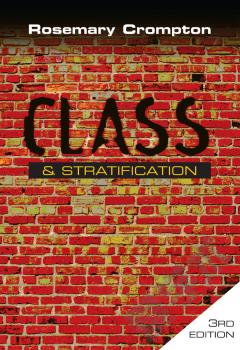Class and Stratification
Social classes are groups of people sharing a broadly similar market, or economic, situation, Class is one of the most fundamental concepts used in sociology to explain differing life chances. The idea had its origins in the classical sociology of Marx and Weber, examined in Chapter 3, and continues to be particularly relevant to areas of research considered later in the book, such as education, work and organizations, crime and deviance and health. This chapter aims to explain theories of class, the major strategies for measuring class inequalities and the debates surrounding the relevance of class in contemporary societies. It should provide understanding of: Marxian and Weberian theories of class and their legacy in modern sociology How sociologists go about measuring class inequalities and criticisms of these methodologies Changes in the class processes of modern societies Some of the major issues surrounding the âend of classâ debate Changing patterns of inequality in contemporary societies
{{comment.content}}








 京公网安备 11010802027623号
京公网安备 11010802027623号